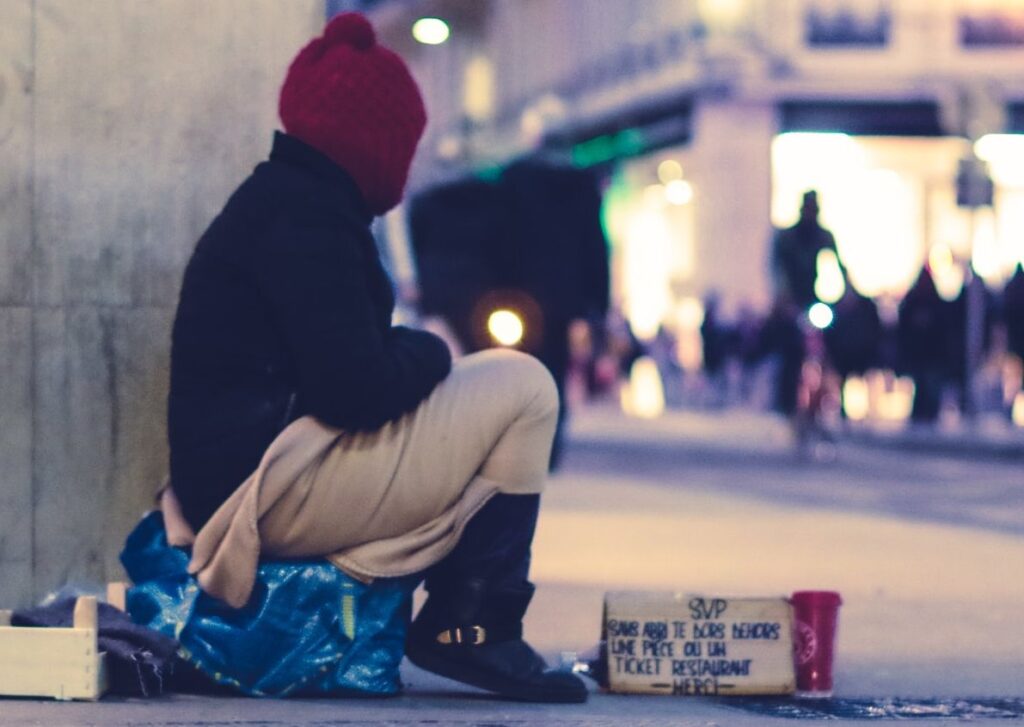As the temperature plummets in Ukraine, the death toll continues to soar with the country’s homeless worst affected, calling into question the Ukrainian government’s stance on homelessness and unemployment.
In Ukraine, more than 135 people have died from the extreme cold, with the majority of victims being homeless. So far, the frozen bodies of 64 homeless people have been found in the streets of Ukraine’s cities, as those sleeping on the streets are struggling to survive in temperatures as low as -35C.
Thousands of homeless people have already been treated in hospitals for frostbite and hypothermia,
with health officials instructing hospitals not to discharge homeless patients, even after treatment, in order to spare them from the cold.
The country’s emergency ministry has also set up 3,000 heated tents across the country to provide
temporary ref- uge for Ukraine’s homeless, offering them warmth, comfort, food and hot drinks. Yet
government resources are being severely stretched as there are simply too many people needing help,
and most are sent back to brave the bitter cold after only a few hours respite.
As the number of those freezing to death across Eastern Europe escalates, statistics show that more
people have died in Ukraine than any other country, highlighting the plight of the country’s homeless and the government’s struggle to provide them with adequate support.
“We try to find people in abandoned houses, factories or cellars and urge them to go to hospitals or night shelters. So far the government say they have had 85,000 people applying for help. As it is, this is a horrible statistic, but it also shows that these 85,000 people were not provided with any kind of help before,” said Maryana Sokha, editor of street paper Prosto Neba, sold by homeless people in the city of Lviv.
“Today in Ukraine there are some 100 social agencies providing social services for homeless people, 30 of which are non-governmental,” she continued. “The quality of the service is another issue, but is it really enough to have 100 agencies in a country with 45 million inhabitants, a quarter of which live in absolute poverty?”
Experts believe the reason so many have died is due not just to the bitter climate, but rather Ukraine’s social and economic policies, which have contributed to more cases of homelessness on its streets than in other eastern European country.
Still suffering from the aftereffects of its economic crisis during 2008-2009, Ukraine has an unemployment rate of 8.5 percent, one of the worst in Eu- rope. During the brutal cold snap, the majority of deaths occurred in eastern Ukraine, the region with the highest numbers of unemployed.
“Ukraine’s problems of homelessness can be also determined by the quantity of social agencies that work here, the quality of their service and by the general attitude of the authorities and society towards homeless people,” argues Sokha. Experts have also said that a negative stance toward the homeless has contributed to the poor official response to the crisis.
Sokha also warns that the death toll in Ukraine is likely to be far more severe than currently estimated, with many deaths going unrecorded.
“I believe that many homeless people will be found dead later in abandoned houses or factories
where they have been trying to find shelter,” she said.
“This is another opportunity to break the boundary that exists between homeless people and society.”
Throughout the crisis, the government has been aided by NGO’s such as Community of Mutual Aid
Oselya which has worked with the homeless people of Lviv for the past 10 years, and was the first of its kind in Ukraine. The organization helps the city’s homeless through different projects like street work, day centers, training, community workshops and the street paper Prosto Neba.
“Every day, workers of Oselya provide people in the city with hot food, tea and clothing, and information about places where they can receive help,” said Sokha. “We also try to find people in abandoned houses, factories or cellars and urge them to go to hospitals or night shelters. It’s very important in this country, where homeless people are not used to the fact that someone can offer them aid and compassion.”
The tragic death toll of the past week sheds light on Ukraine’s homeless problem and the failure of its government to address this issue. Despite its current efforts, not enough is being done to help at least 85,000 homeless people currently roaming the streets of Ukraine’s cities in search of survival.
“Media coverage has raised the problem and brought about debate for possible solutions. It is reminding the public about the seriousness of Ukraine’s homeless problem, so this is another opportunity to break the boundary that exists between homeless people and society,” Sokha said. She remains skeptical about the long-term impact of the ‘snow emergency support’: “It is good that we have authorities and organizations doing something about this situation now, and saving people’s lives. I’m just afraid that they will forget about them until the next extreme cold.”
-Street News Service








